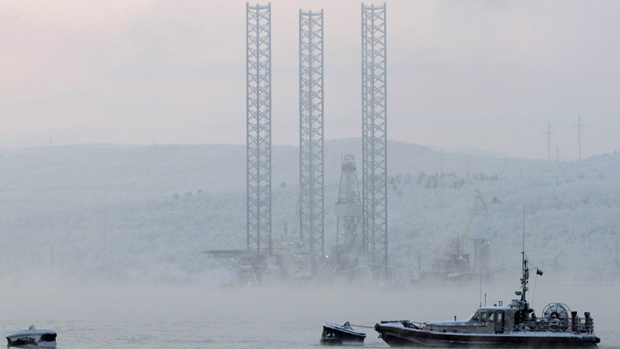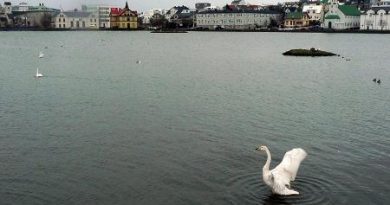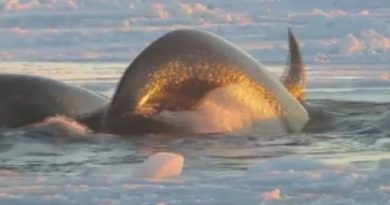Russian oil rig sinks off coast of Sakhalin, 49 missing
 The Russian oil rig Kolskaya sunk 200 miles off the east coast of Sakhalin late Saturday night in stormy weather with 67 crewmembers were on board. So far, four people have been found dead and 14 people rescued, while 49 people still remain lost. The Kolskaya sunk in twenty minutes in fifteen-foot, 32 degree seas. In Moscow, President Dmitry Medvedev called for all necessary help to be directed towards the rescue efforts.
The Russian oil rig Kolskaya sunk 200 miles off the east coast of Sakhalin late Saturday night in stormy weather with 67 crewmembers were on board. So far, four people have been found dead and 14 people rescued, while 49 people still remain lost. The Kolskaya sunk in twenty minutes in fifteen-foot, 32 degree seas. In Moscow, President Dmitry Medvedev called for all necessary help to be directed towards the rescue efforts.
The Neftegaz-55, which had been towing the Kolskaya to the port of Kholmsk, in western Sakhalin, and the icebreaker Magadan were at the scene assisting with the rescue efforts.
The SMIT Sakhalin (an icebreaker of class 1A Super) and the Atlas rescue ship were on their way to the site of the sinking, too. Two helicopters searched for people on Sunday, but had to return to Sakhalin until Monday morning due to nightfall and continuing adverse weather conditions.
Thirty-three of the crewmembers hailed from Murmansk. Counselors from the city, in Russia’s western Arctic, have flown to Sakhalin to assist those affected by the sinking. The Russian Ministry of Emergency Situations (EMERCOM) has established a hotline for people to call for information regarding the disaster or for psychological counseling. This time, the authorities seem to be enacting a swifter response than in the past, when it clumsily and belatedly responded to disasters such as the sinking of the icebreaker Kursk in 2000.
Rescue moblized
The Kolskaya was a jack-up rig that stood on three legs to drill for oil. Built in Finland, the rig was 26 years old. The Arktikmor Neftegaz Razvedka (AMNGR) company owned the rig, which was performing exploration work for Gazflot, a subsidiary of Gazprom. A spokesperson for AMNGR stated, “There is no ecological danger. The vessel was carrying the minimum amount of fuel as it was being tugged by two craft.” The head of EMERCOM Sakhalin, Taimuraz Kasaev, echoed this statement, saying, “Stocks of fuel on board PB” Kola were minimal. They are in sealed tanks, so there is no threat of a spill.”
The Sakhalin is a hotbed of offshore exploration activity, with Gazprom, ExxonMobil, and Shell all involved. While the sinking is a tragedy for those lost onboard, it could have been much worse for the environment. Incidents such as the sinking of this rig should prompt more oversight of offshore drilling activities, whether in Russia or anywhere else in the Arctic. The same goes for shipping, whether of oil or other cargo, as it was only days ago that the Korean cargo ship Oriental Angel ran aground in similar conditions off Chukotka, to the northeast of Sakhalin.
Russia’s maritime infrastructure could also use an upgrade. Near Antarctica, the Russian fishing ship Sparta has run into trouble, as its hull became damaged when it hit a submerged iceberg. The Korean icebreaker Araon, which is currently seven days away from the Sparta, in Christchurch, had been about to embark on an Antarctic research mission. However, it will now sail towards the trapped ship to try to rescue it – a reversal of the situation on the opposite end of the earth.
News Links
“Russian drilling rig sinks off Sakhalin, 49 missing,” Chicago Tribune
“Crew face long, cold wait for rescue,” New Zealand Herald



